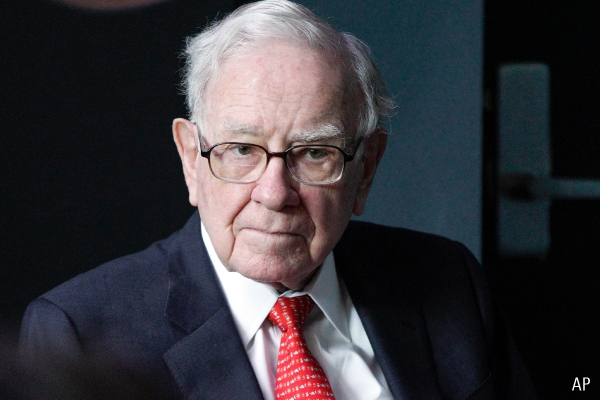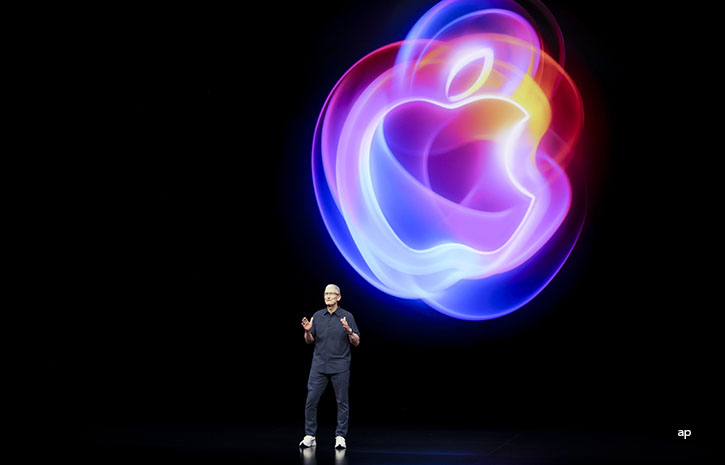
Last year, Apple (AAPL)’s stock hit a market valuation of US$3 trillion but has since receded back to US$2.7 trillion. The company holds the potential to recover, and more, depending on how you see the company.
“Many people still see Apple as a hardware company, but I see it rather as a platform,” says Robertson Velez, lead portfolio manager of the CIBC Global Technology fund. “Apple’s competitors make money only from their phones, but Apple has a large base of services, software, and hardware from which it can generate revenue. Samsung and LG don’t own the Android platform as Apple does its own.”
Monetizing a Vast User Base Through Services
Morningstar strategist Abhinav Davuluri sees growth in services at Apple: “Services revenue rose 6% year over year to US$21 billion with strength in App Store, Apple Music, iCloud and Apple Pay, he observes. “Apple now enjoys over 975 million paid subscribers (up from 935 million last quarter), which we think bodes well for continued services growth as the firm increasingly monetizes its valuable installed base.”
Morgan Stanley analyst Erik Woodring sees Apple moving from simple unit growth to installed base monetization. Its base of 1.2 billion users spends on average US$32 per month on services and products, or barely half of an average US cable bill.
“Hardware is mostly an upgrade cycle, but services still have a large potential for growth,” Velez says. And that services platform is wide, including iTunes, iCloud, App Store, Apple Pay, Apple TV+, Apple Care, Apple Arcade, Apple Fitness, and Apple Card.
Services revenues grew at the fastest pace recently, well above iPhone revenue, which inched up by 2%, while sales of iPads and Macs fell by 13% and 31% respectively. As Velez points out, “The smartphone market is considered mature; it is still growing, but only at a single-digit pace. Still, Apple’s base is growing by bringing clients through other venues like the App Watch and Apple TV.”
Outside Innovations Benefit App Store
Emerging technologies present strong growth opportunities at Apple through services. For example, Velez notes that if AI becomes a killer app, Apple will get its usual cut of 30% on all AI apps it sells through its App Store. Another area is speculation that an Apple AR/VR headset announcement could be coming soon, which could lead to what Woodring calls a hardware subscription service that could further increase the monetization of its user base.
Velez and Woodring point to the frequently overlooked strengths of Apple. "What is most underappreciated by investors today is just how strong Apple's underlying gross margins are when adjusting for foreign exchange headwinds," Woodring notes. That could add up to 150 basis points to the consensus gross margin forecast, he believes.
Davuluri also points out currency challenges: “Apple management noted quarterly sales would have been up in constant currency (500 basis points in foreign exchange headwinds).” Velez highlights Apple’s tremendous cash flow generation of close to US$ 100 billion per year, which “becomes pure return to shareholders thanks to share buybacks.”
Apple Headset Around the Corner – If Supply Chains Allow
Of course, Apple’s path is not without headwinds. Notably, “the supply chain is heavily dependent on China, and that could sour,” Velez notes. Also, Apple skeptics rightly claim that you’re only as good as your last success, and Apple’s outstanding streak of innovative products and services could falter. On the other hand, Woodring indicates, in anticipation of the rumoured AR/VR headset, “history shows that you want to own Apple stock 6-9 months ahead of key product launches.”
Woodring is extremely bullish on Apple’s stock, suggesting that it could catapult to a US$ 4 trillion valuation in the next 12 months. Velez is more subdued. “I think services can grow at a double-digit rate and I agree that market capitalization could reach four trillion dollars, but maybe in the next five years.”
For the time being, and until all catalysts start to fire up a chain reaction, Davuluri points out a few sobering facts. “We remain cautious of the next several quarters for the firm as macroeconomic headwinds persist, though we concede that wide-moat Apple will fare better than many of its smartphone peers. Our fair value estimate remains $150 per share, and shares appear overvalued at current levels (US$175)”.









:quality(80)/cloudfront-us-east-1.images.arcpublishing.com/morningstar/7WLK3HWLZBFR7NKI45PXWUD6OI.jpg)











